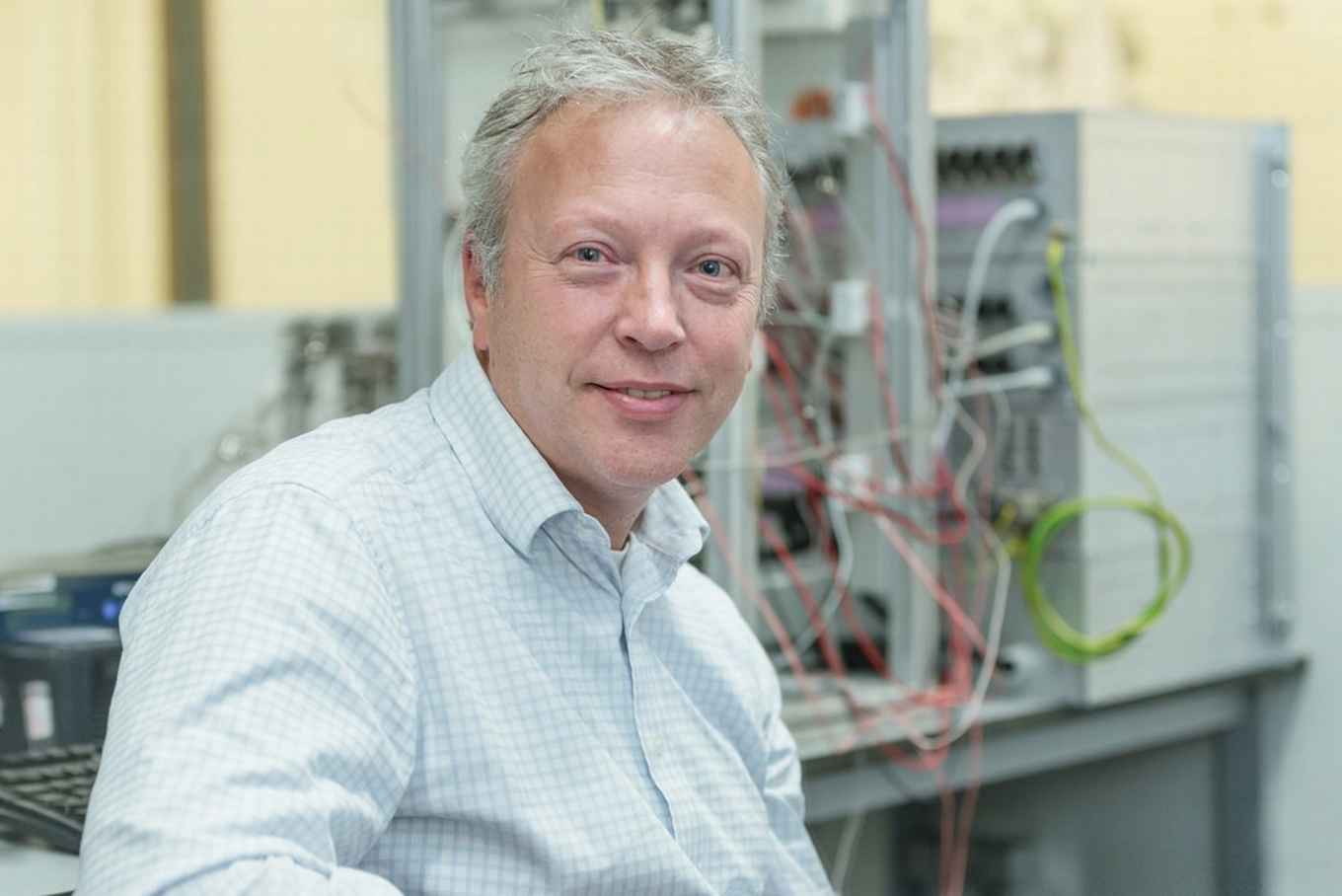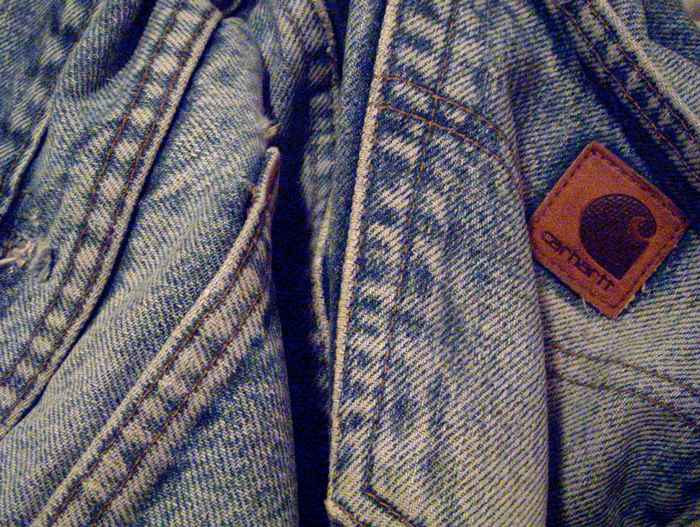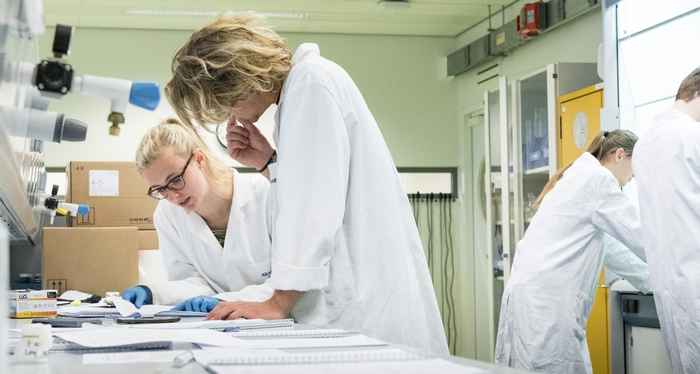"I want to develop new materials that meet the demands of today"
25 November 2021

The Bèta Plus Foundation promotes scientific research at the Faculty of Science with some twenty special chairs for researchers from companies or research institutions that have common ground with faculty research. Gert-Jan Gruter is Chief Technology Officer at Avantium, the Amsterdam-based chemical technology company. Avantium focuses on commercializing technology for new, sustainable plastics and chemicals. For example, it developed a sustainable production route for the plastic PEF, which is a promising 'green' material for soft drink bottles. "We have the ambition to open the world's first commercial PEF plant by 2023, so that's where our focus is now," says Avantium CEO Tom van Aken. "But we have also built up a lot of knowledge in other areas. The cooperation with the UvA is aimed at developing a new generation of sustainable materials."
Gruter's chair at the Van 't Hoff Institute for Molecular Sciences is part of the UvA Research Priority Area Sustainable Chemistry led by faculty professor Joost Reek. "Chemistry's transition to sustainability and circularity requires fundamental research that sparks meaningful chemical innovation," Reek says. "To be of relevance to society you have to look at implementation and application of that new chemistry. The Industrial Sustainable Chemistry chair is good at that, and this leads to fruitful interactions."
Wide-ranging research
Gruter's focus is on developing new generations of plastics that are not made from oil but from biomass and CO2. And that are, on top of that, sustainable and circular and have a reduced environmental impact. To be able to research the processing and properties of the materials, the group synthesizes many kilograms at a time. "We're talking really applied research here, for which we collaborate with relevant parties such as LEGO," Gruter says. "Our premise is to eventually be able to scale up the processes in a competitive way." At the same time, the group performs fundamental research on plastics and their uses, Gruter says. He supervises nine PhD students, most of whom are now in their third or fourth year. "They are achieving great results that get published in appealing scientific journals. So we have an eye for application, but we are also an academic group just like the other faculty groups."

Gruter deliberately maintains a wide-ranging research scope. "For example, we are looking at ways of testing biodegradation of plastics, in soil and in seawater. The quantification of micro and nanoplastics in the environment is also an important topic. And we are charting the willingness of consumers to take steps towards sustainability. This is done in collaboration with other UvA researchers, for example at IBED, the Institute for Biodiversity and Ecosystems Dynamics, and the Social Psychology group of the Faculty of Social and Behavioral Sciences. But we also collaborate with Leiden University and the Vrije Universiteit.
Counting fibres
Asked to describe a project that gives him great satisfaction, Gruter mentions quantifying PET plastic fibres in the environment. "These result from the wear and tear of clothes during washing and drying. They are so small that they slip past all filters. You find them in water, in the air, they are really everywhere. But since they are so small, it's hard to determine the extent of the problem. Together with environmental researcher Heather Leslie at the Vrije Universiteit we have now been able to take an important step." The usual approach is to count plastic fibres under the microscope, but the really small fibres then stay out of sight, literally. Gruter developed a method in which all plastic fibres are first broken down chemically and then quantified with advanced analysis techniques. A study of samples taken at water treatment plants around Amsterdam showed the value of the new method. "Surprisingly, we find that there's more plastic that you can't see under the microscope than what you do observe there", Gruter says. "So we have shown that this is a serious materials problem: There really needs to be a focus on the wear and tear of textiles that contain plastic, such as polyester and nylon."
Jeans
Textiles are also at the centre of a new project where Gruter wants to develop a method for recycling mixed textiles. The most common textile 'blend' is cotton/polyester that is used for instance in jeans. The problem is that these can't be recycled using the usual technique for cotton recycling because of the polyester (usually PET), and conversely, PET recycling is impossible because it is disrupted by the cotton.

Since it is not an option to unravel jeans thread by thread, the solution for worn-out jeans is to burn them. Gruter thinks he can develop a useful alternative based on Avantium's knowledge of biorefining. "We know how to convert cellulose from plants into sugars, from which we make new plastics. We now want to apply this expertise to textiles. In the lab, we have already seen that our technology breaks down the cellulose chains of the cotton in the textile blend. What remains is polyester, which can then be recycled. This is how we achieve circularity." He is in the process of acquiring funding for the further development of the concept and hopes to realise a mature process for cotton/polyester recycling within five years.
Intellectual property
Gruter sees clear synergy between his work as a professor, focused on the sustainability transition of chemistry, and as CTO of Avantium, focused on the commercialisation of sustainable technology. But he realises that this could also lead to conflicts of interest. "We are very transparent about that. We usually work in a setting of Public-Private Partnership, so with funding from both public and private sources. In those projects, we make clear agreements about intellectual property right from the start, according to the rules of the subsidy provider such as NWO, RVO and EU." A number of Gruter's PhD students work in the labs of Avantium, which provides supervision and bears the cost. "For the UvA, this ultimately results in scientific output as well as the financial benefit of the 'PhD premium'. The advantage for Avantium lies in acquiring intellectual property. But also in these cases, agreements are established right at the start of the project."
This is the time to study chemistry
Gruter's starting point, and that of Avantium, is that today's world cannot do without plastic. So whatever the problems are, the solution is not to ban plastic. "What matters now is to learn from the mistakes of the past. Plastics were introduced without any idea of recycling or environmental impact, let alone long-term effects. We see that differently now."

"In my eyes, we, as chemists, have the responsibility to develop new materials that meet the requirements of our time. And there are plenty of opportunities. The need for plastics is growing rapidly worldwide, so new factories will be built. As far as I am concerned, these should all make new, sustainable materials that are easier to recycle and do not pose an environmental problem. At first, we can certainly ask for a higher price, but ultimately we must be able to compete with the existing 'old' plastics.
For Gruter, chemists are indispensable when it comes to realising the goals of the sustainability transition: "It is quite a challenge to be able to make all plastics without fossil raw materials by 2050. Or to achieve complete circularity. Furthermore, we must ensure that materials that only function very briefly, such as for packaging, do not remain in nature for hundreds of years. And we must search diligently for alternatives to scarce materials. There is already a list of about 25 elements that will become scarce while we want to use them for batteries, electronics and catalysts. That number will grow and we need to give that our attention. So there is no better time to study chemistry than today. That is also what we as chemists, as the UvA, as Avantium must propagate: step in now and join us in making the transition happen in the next 30 years."
Links
- Research Group Industrial Sustainable Chemistry
- Research Priority Area Sustainable Chemistry
- Bèta Plus Foundation (in Dutch)
- Avantium